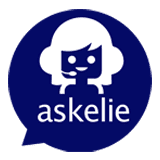Accessibility in UK is finally moving from a side conversation to the centre of public debate. Parliament is reviewing disability rights reform and across Europe and the United States, lawsuits are forcing organisations to take accessibility more seriously. Even charities are warning that official information still too often leaves people excluded or confused.
At the heart of this issue is a simple truth: information is power. If people cannot understand the documents, policies or letters that affect their lives, they are effectively locked out. For councils, hospitals, housing providers and charities, this is not just a compliance issue. It is a question of fairness, dignity and trust.
This is where askVERA makes a difference.
Why Accessibility in UK cannot be an afterthought
Complex documents are everywhere. A housing agreement runs to dozens of pages filled with technical language. A hospital discharge note may contain medical terms that overwhelm patients. A government policy update often reads like a legal document instead of clear communication.
For many people, these formats create barriers. Individuals with learning disabilities, neurodiverse people, those with limited literacy and anyone reading in a second language can struggle to understand. Families and support workers often spend hours trying to interpret and explain. Mistakes follow, rights are missed and trust is lost.
Accessibility in UK communication is not about ticking a regulatory box. It is about enabling people to take control of their lives, understand their rights and follow important instructions.
What askVERA does
askVERA is designed to transform complex information into Easy Read documents. It takes documents such as tenancy agreements, hospital letters, policy papers or application forms and rewrites them in plain language supported by images and symbols.
The process is simple. Upload a document or share a link. Within minutes, askVERA creates an Easy Read version that is accurate, consistent and tailored to the audience. Staff can review the output, make adjustments if needed, and publish or share instantly.
The benefits are clear:
- Clarity: people understand information without constant explanation.
- Independence: service users are empowered to make their own decisions.
- Efficiency: staff spend less time repeating information and more time on support.
- Compliance: organisations meet accessibility obligations with less effort.
Why Accessibility in UK matters now
The debate around disability rights reform in Parliament highlights the urgency of solutions like askVERA. The government is under pressure to improve access to services and information. Charities are providing evidence that families are left unsupported because official communication is too complex.
Internationally, accessibility lawsuits are rising. In the United States, thousands of cases are filed each year against organisations whose websites and documents are not accessible. In Europe, the European Accessibility Act will require new standards from 2025.
Organisations that ignore Accessibility in UK risk reputational damage, legal penalties and a loss of public trust. Those that act now position themselves as leaders in inclusion and equality.
Case study example
A local authority needed to share updated housing policy with tenants. The standard version ran to 40 pages of dense text. Tenants with learning disabilities and limited literacy struggled to follow it, and staff were overwhelmed with calls for clarification.
By using askVERA, the authority created an Easy Read version of the policy. The content was rewritten in plain language, supported with images and symbols. The new format was published alongside the original policy and shared with tenants.
Feedback was immediate. Tenants reported feeling more confident about their rights and responsibilities. Calls for clarification dropped by 35 per cent. Staff gained back valuable time, and the council met its accessibility obligations.
This example shows how Accessibility in UK services can be delivered effectively with the right tools.
Five reasons to adopt askVERA today
- Meet legal obligations: align with UK equality law, accessibility standards and best practice.
- Save staff time: reduce the need for repeated explanations and clarifications.
- Build trust: show service users and communities that you take inclusion seriously.
- Empower people: give individuals the confidence to act on their own rights and choices.
- Future proof services: prepare for upcoming accessibility regulations in the UK and Europe.
The wider benefits of Accessibility in UK
Accessibility is often described as a duty, but it delivers much wider benefits. Plain language improves communication for everyone, not just those with specific needs. Staff read documents more quickly. Partners understand policies without confusion. Communities grow stronger when communication is clear and transparent.
Accessible communication also reduces risk. When people misunderstand policies or instructions, mistakes happen. These mistakes can lead to complaints, legal disputes or even harm. By ensuring information is clear from the start, organisations prevent problems before they arise.
Frequently asked questions
Does askVERA replace staff creating Easy Read?
No. askVERA supports staff by automating the most time consuming parts of the process. Staff can review and approve the final version, ensuring quality and context are preserved.
Can askVERA be customised?
Yes. The platform allows organisations to tailor images, symbols and tone to match their audience. Branding can also be applied for consistent presentation.
Is askVERA only for public sector use?
No. Charities, housing providers, hospitals and even private companies benefit from offering Easy Read versions of their communication.
Closing thoughts
Accessibility in UK organisations is no longer optional. With disability rights reform under way and accessibility regulations tightening internationally, it is time to act. More importantly, people deserve to understand the information that shapes their lives.
askVERA makes accessibility simple, fast and effective. It transforms complex documents into Easy Read versions that empower individuals, save staff time and reduce risk.
Organisations that invest in Accessibility in UK communication are not only complying with regulations. They are leading on inclusion, building stronger trust with communities and proving that clear communication is a right, not a privilege.



Comments are closed